Assembly Votes Challenge Threats to Patient Care
Patient care issues had a prominent place on the agenda for the APA Assembly's November meeting in Washington, D.C., and several dealt with prescribing concerns in a health care environment that is not always patient friendly.
The representatives passed a paper, for example, whose intent is to“ protect and encourage prescribing” that is both clinically and financially “appropriate.” The proposal addressed the skyrocketing use of drug formularies and pharmacy benefit managers and emphasized that formularies are difficult to use in psychiatry “because of low nosologic specificity, lack of interchangeability of medicines within a class, and a lack of understanding of the mechanism of action of psychotropic medications.” As a result, the Assembly voted to support pharmacy benefit managers that “seek to manage utilization by improving quality, such as by promulgating scientific standards of prescribing through markers of best practices and education.” The vote also included a call to collaborate with the AMA and other specialty organizations on this issue.
The Assembly also issued a call to halt the practice of “managed care pharmacists inciting patients to change their medication regimens without disclosing their profit motive.” Assembly representatives were angry about reports of pharmacists affiliated with managed care plans telling patients that they can save money if they switch to a generic or a brand-name drug on the insurer's formulary and urging them to ask their physicians to change their medication. The proposal was forwarded to several APA components for further input.
Concern about Medicare's Part D program was discussed as well; in particular, the representatives discussed “obstacles” that the Part D pharmacy benefit plans put in front of patients before they can get a drug their physician thinks is the most appropriate. The Assembly voted to have APA compile information on the issues, contact the Centers for Medicare and Medicaid Services “regarding development of standardization of such clinical data throughout the Part D program for all pharmacy plans,” and look at the issue of having Medicare reimburse physicians for the time they expend on prior authorization for and appeals of prescribing decisions.
On other issues the assembly voted to
Endorse the second edition of the Practice Guideline for the Treatment of Patients With Alzheimer's Disease and Other Dementias of Late Life. The Board of Trustees will consider the document at its December meeting. Once approved, it will be published in the American Journal of Psychiatry, on APA's Web site, and at Psychiatryonline.com. | |||||
Have APA endorse construction of a suicide barrier on the Golden Gate Bridge in San Francisco by sending letters of support to the bridge's board of directors and state and local politicians. Supporters of the proposal pointed out the bridge has for decades been a magnet for suicide attempters, with an average of two people every month jumping to their deaths. | |||||
Address the issue of patient suicide “as an occupational hazard” for psychiatrists, by urging more comprehensive residency training on the topic and by having APA provide members with resources for dealing with the impact on psychiatrists of a patient's suicide. | |||||
Endorse a two-year pilot project in which APA would issue more frequent updates of the publications in its practice guideline series. The Assembly wants the Steering Committee on Practice Guidelines to update at least one of the guidelines every year. | |||||
Provide a practice-management guide to members-in-training (MITs). APA now sells the practice-management guide for $20 to MITs transitioning from that status to general membership. The Assembly wants a CD-ROM of the guide sent for free to any PGY-4 MIT who requests it. | |||||
Recognize medical schools that are successful in having their graduates enter psychiatry residencies. Awards in the form of a plaque would be given to up to three medical schools each year that have the highest percentage of their graduates begin careers in psychiatry. | |||||
Establish a work group of Board of Trustees and Assembly members to explore models by which APA could share more of its revenue with district branches. While APA does have a competitive grant program through which it gives financial support to district branches undertaking a range of projects, the Assembly wants the work group to consider issues that focus on ensuring that district branches remain solvent over the long term, a recurring problem for many of APA's small district branches. | |||||
Express its “appreciation and support for our Uniformed Services psychiatrists and their work on behalf of people in our Armed Forces and their families.” | |||||
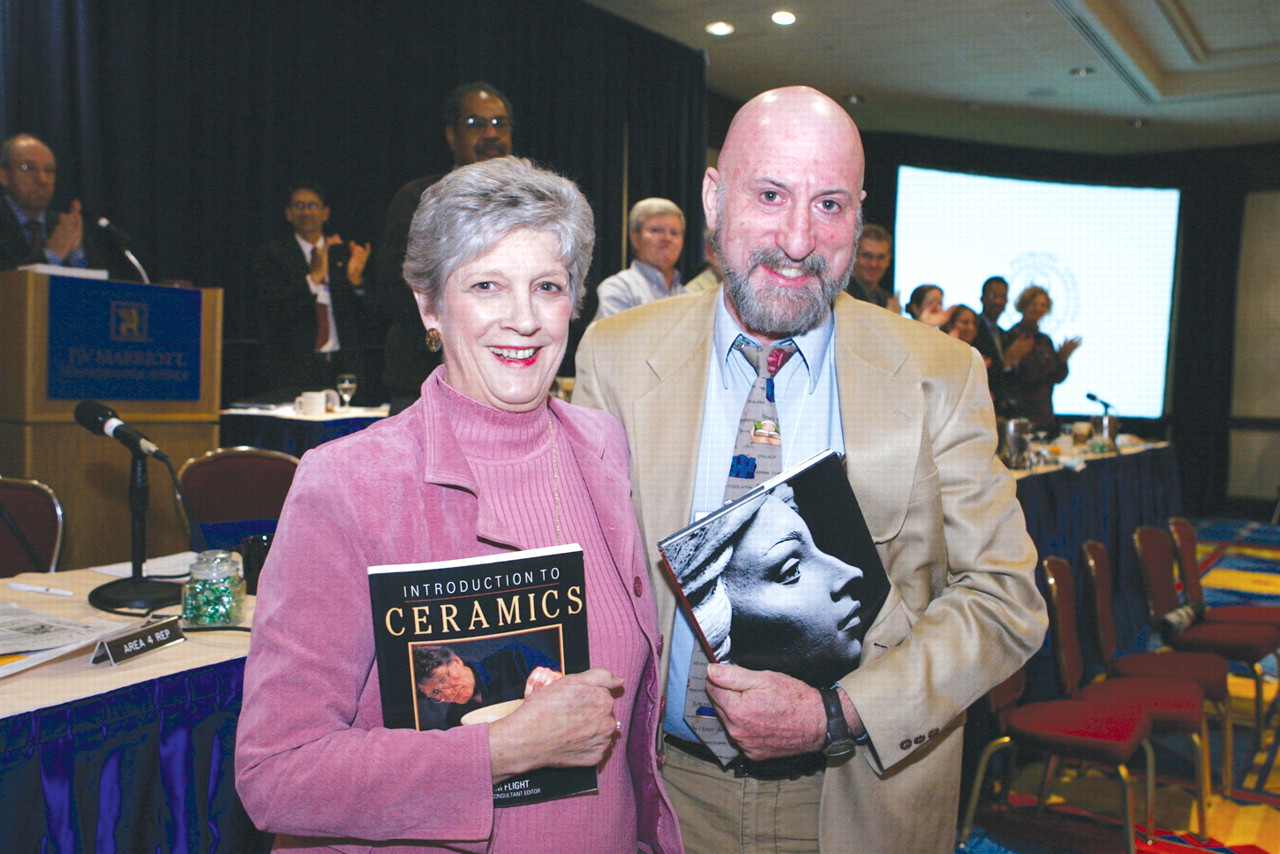
APA Area 1 Trustee Jeffrey Geller, M.D., poses with APA staff member Carol Lewis after presenting a set of books to her on behalf of the Assembly. Lewis, senior projects manager in the Association Governance Office, retired from APA in October after 38 years of service. She is probably best known among APA members for her work in handling all matters related to the election of APA's officers and trustees.
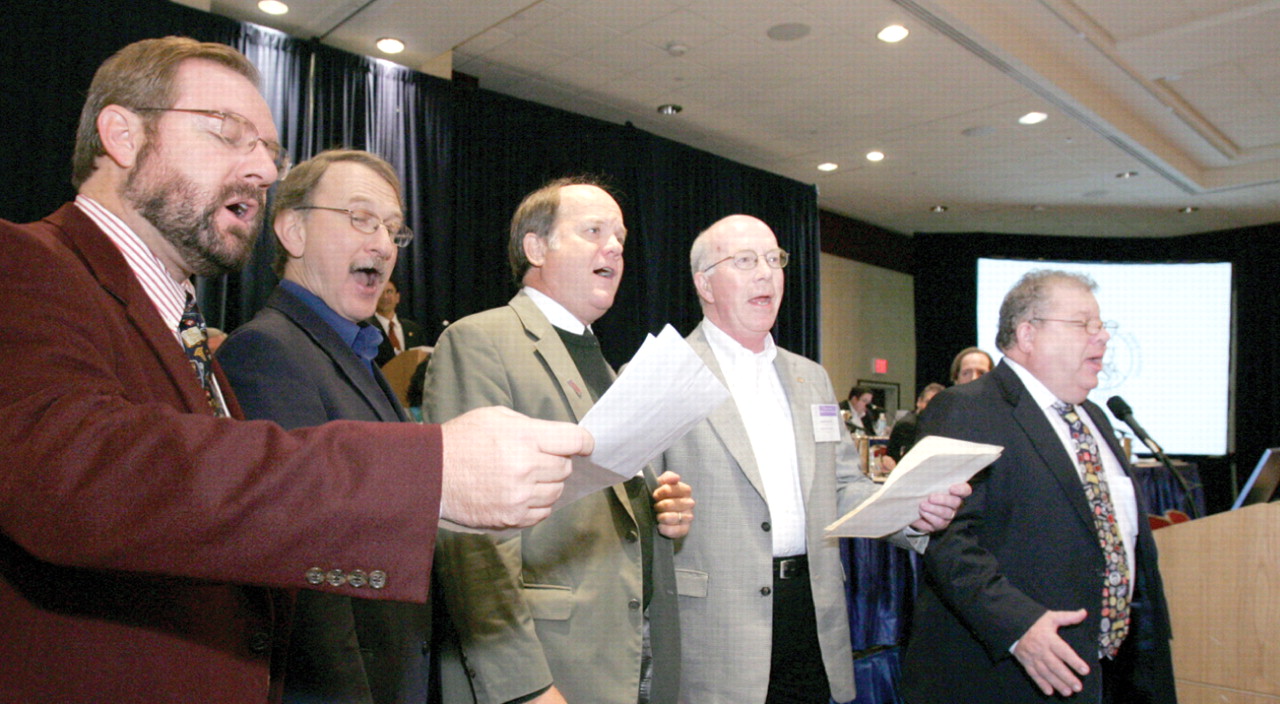
Five Assembly members break out in song as part of the Committee on Planning report. Photos: David Hathcox
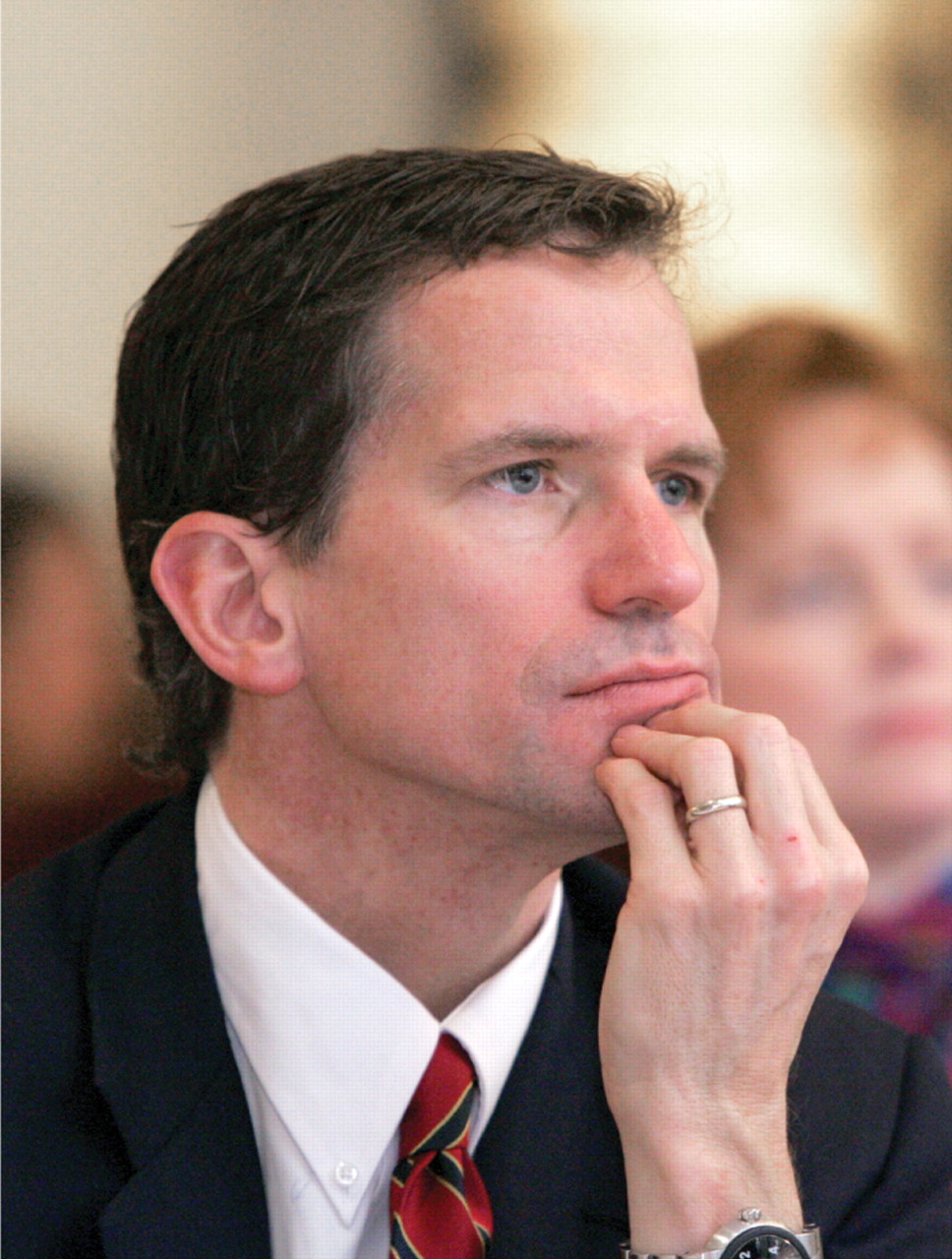
Mark Townsend, M.D., the lesbian, gay, bisexual psychiatrists' representative to the Assembly.

Barbara Yates, M.D., a representative of the Northern California Psychiatric Society.
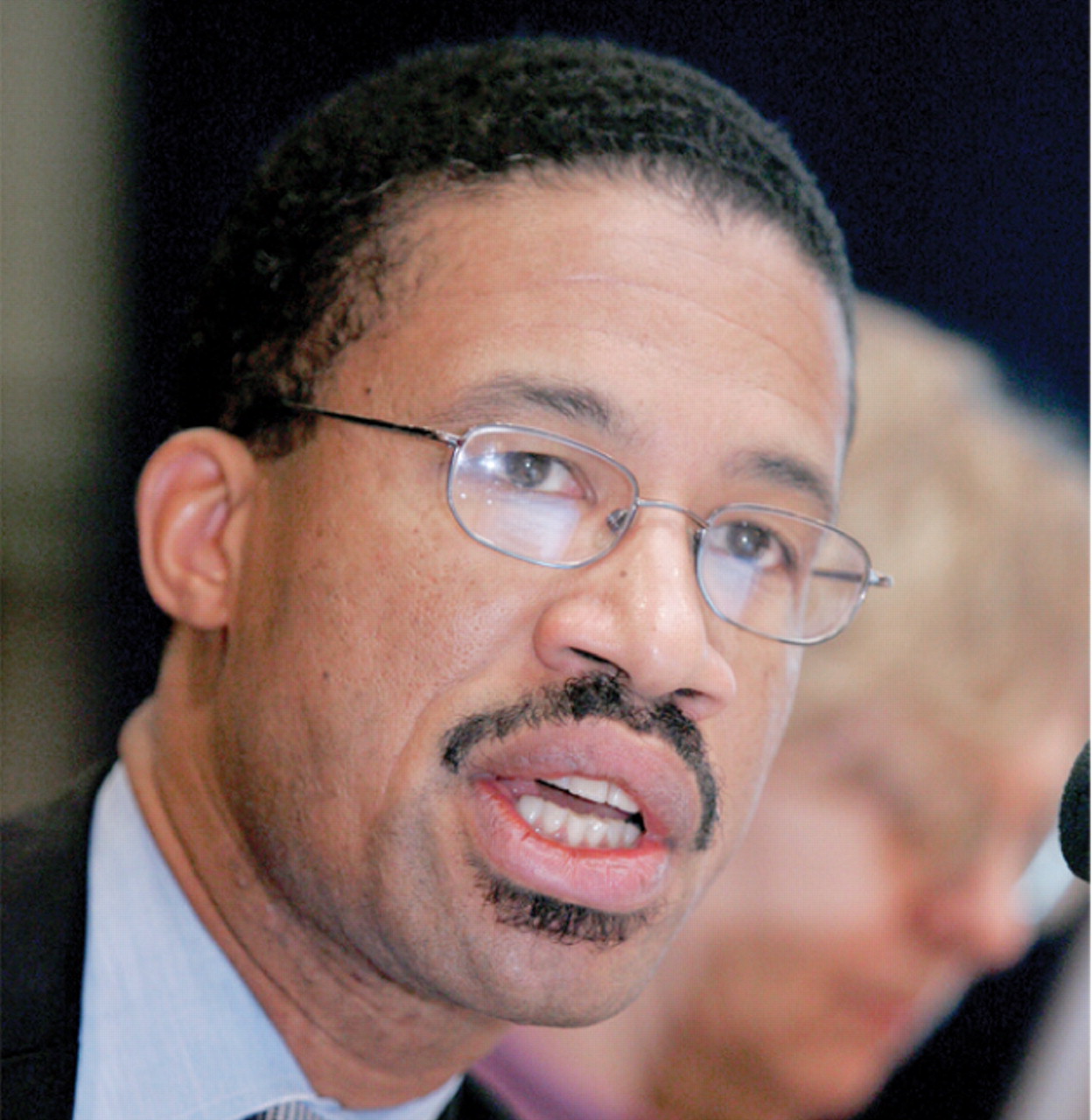
Stephen McLeod-Bryant, M.D., the minority/underrepresented group representative to the Assembly Executive Committee.
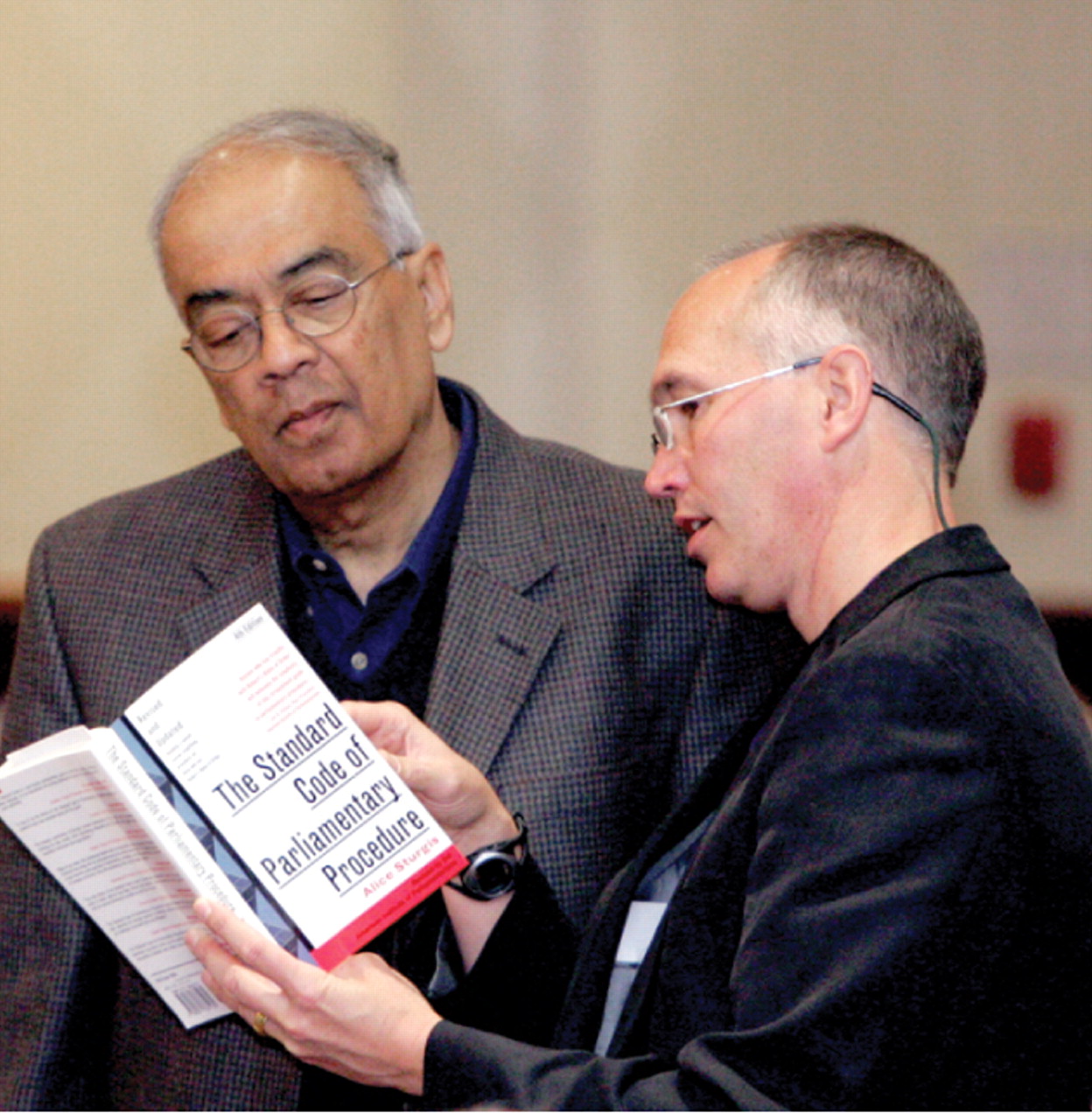
Ronald Burd, M.D. (right), discusses nuances of parliamentary procedure with Ramakrishnan Shenoy, M.D., of Virginia.
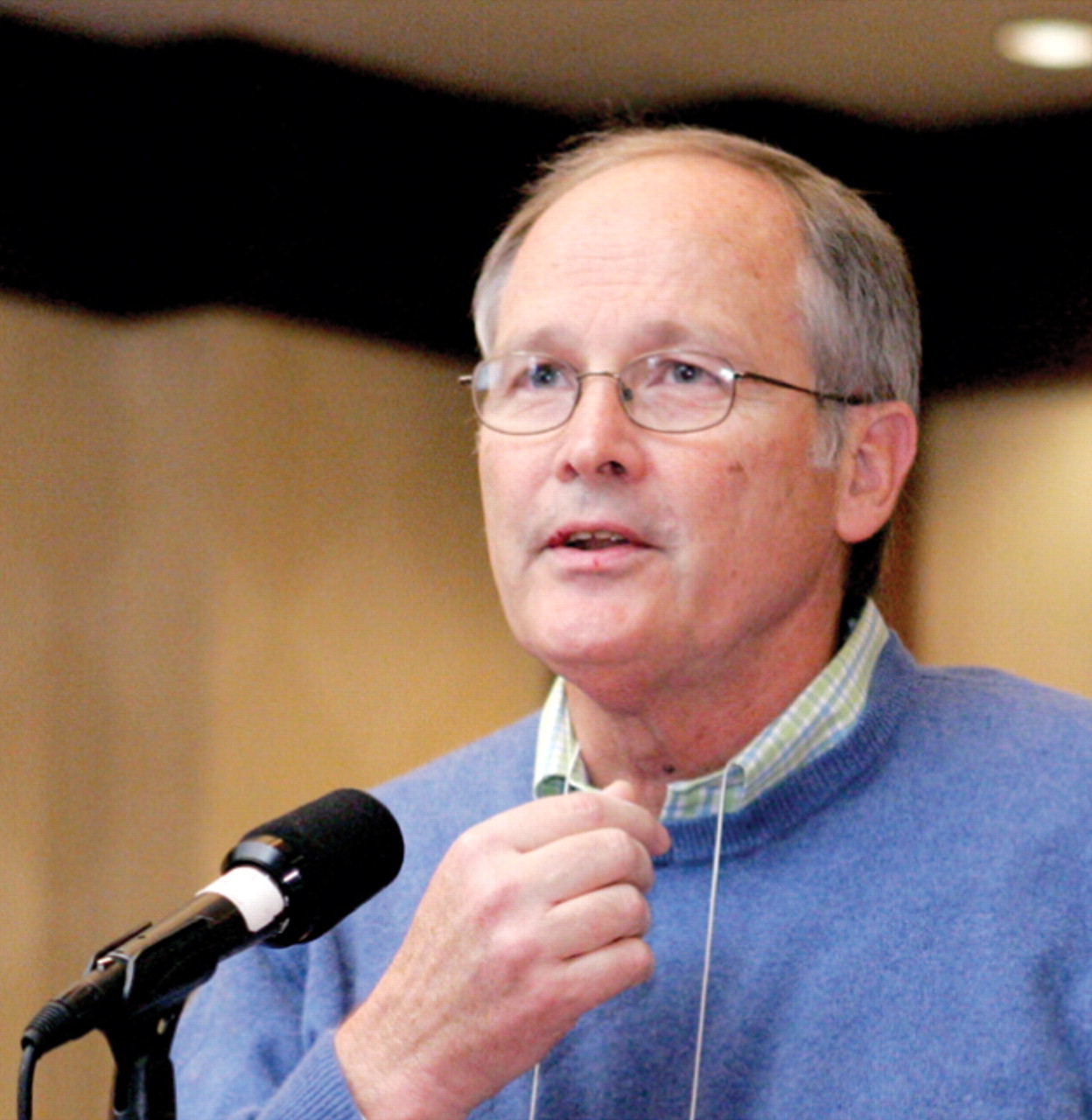
Robert Benson, M.D., a representative of the Florida Psychiatric Society.
In addition to these actions, several Assembly awards were presented at last month's meeting. Prominent among them was the Ronald A. Shellow Award, which is named for a beloved past speaker of the Assembly. This year's award went to jeffrey Geller, M.D., of Massachusetts, who served for many years as a district branch representative and more recently as the Assembly's Area 1 representative. Geller now represents Area 1 on the APA Board of Trustees.
Each year, each of APA's seven Areas presents a Warren Williams Award, also named for a former Assembly speaker. Three were presented at last month's meeting. Area 5 presented its award to Doris Shellow, who was the longtime executive director of the South Florida Psychiatric Society before it merged with the Florida Psychiatric society. She was honored for her service to both district branches. She is the widow of Ronald Shellow, M.D.
Area 6 presented its award to James Krajeski, M.D., who was honored for his work as editor in chief of Psychiatric News for the last eight years, as well as his service in the Assembly and the Northern California Psychiatric Society.
The Area 7 Warren Williams Award went to Vit Patel, M.D., the Assembly representative for Hawaii. Patel was honored for his 30 years of service to APA and to the Hawaii district branch, of which he is president-elect.▪



